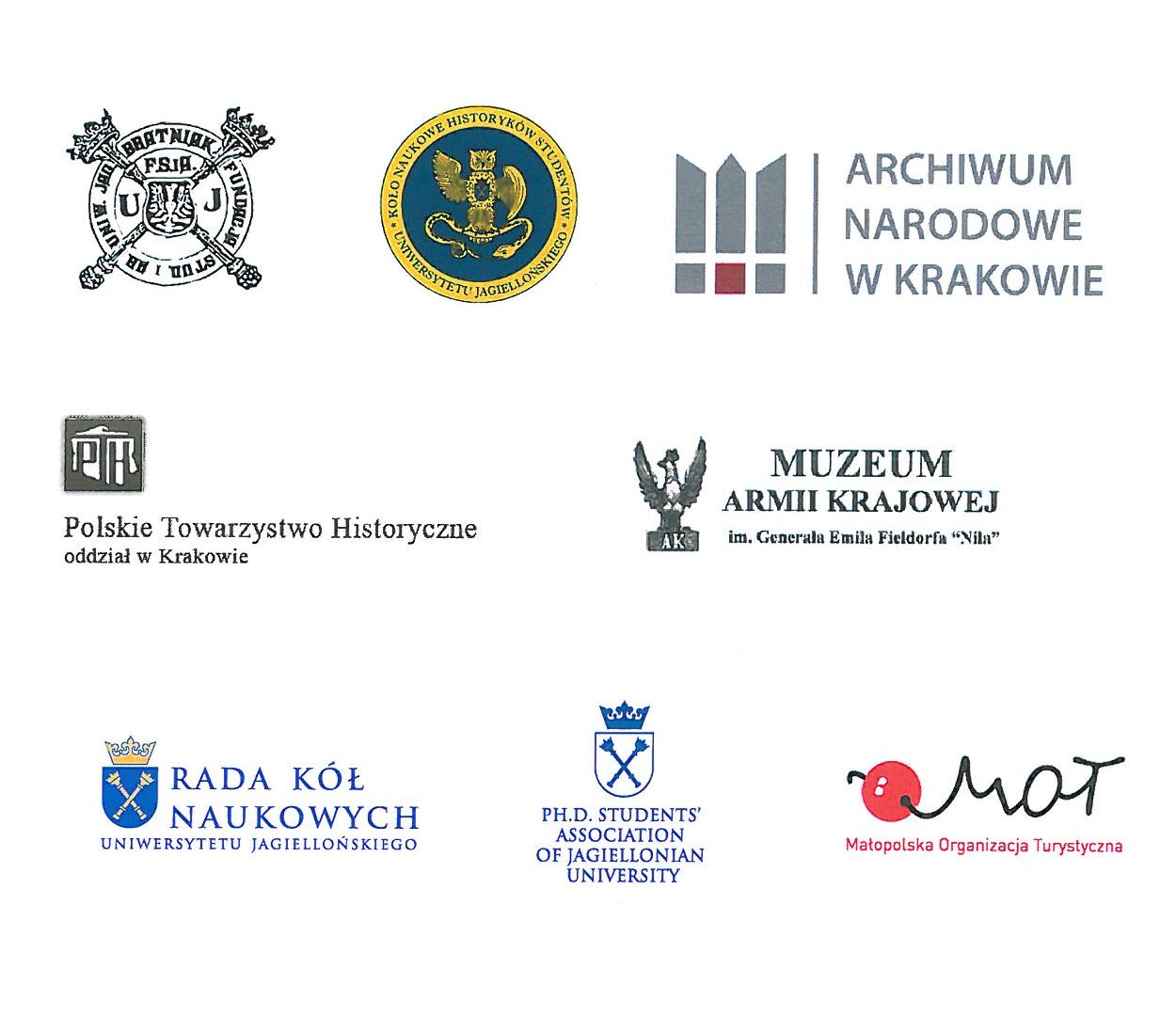23-25 X 2014 r. konferencja All Quiet on the Eastern Front? World War I in Central and Eastern Europe in the experience of soldiers, social groups and local communities
Instytut Historii UJ serdecznie zaprasza w dniach 23-25 października b.r. na międzynarodową konferencję naukową poświęconą doświadczeniom, jakie były udziałem mieszkańców Europy Środkowo-Wschodniej w czasie I wojny światowej. W 100-lecie wybuchu I wojny światowej uczestnicy konferencji z różnych państw (US.A, Republika Czeska, Słowacja, Ukraina, Niemcy, Austria, Wielka Brytania, Polska, Włochy) będą się zastanawiać nad tym czy doświadczenia Europy Środkowo Wschodniej były w jakiś sposób specyficzne i dlaczego dziś wiemy o nich tak niewiele.
All Quiet on the Eastern Front?
World War I in Central and Eastern Europe in the experience of soldiers, social groups and local communities
International conference – research workshop
Institute of History, Jagiellonian University in Kraków
23rd–25th October 2014
PROGRAMME
Thursday, 23 rd October
Collegium Novum, room 56 (2nd floor)
10.00 Opening
Sławomir Sprawski – Director of the Institute of History, Jagiellonian University
10.15 – 12.00 Panel 1: City and region. Chair: Tomasz Pudłocki
Laurence Cole (University of Salzburg), Popular reactions to the Outbreak of the First World War in Austro-Hungary: a regional case-study of Salzburg
John Fahey (Purdue University), Imperial to National by Way of Urban: Przemyśl, Galicia 1918–1921
Kamil Ruszała (Jagiellonian University), "God, punish Germany and destroy Austria". Social reactions to political events and the collapse of the Austro-Hungarian Monarchy in Galicia (according to Ministerial sources)
Discussion
12:00 – 12:15 Coffee Break
12:15 – 13:15 Panel 2: Life under occupation. Chair: Sławomir Kułacz
Jovana Knezevic (Stanford University), The Experience of Occupation in Habsburg Serbia during the First World War
Michał Wilczewski (University of Illinois at Chicago), The War at Home: Polish Villages during the First World War
Discussion
13:15 – 15:00 Lunch Break
Museum of Home Army, Wit Stwosz Street 12
15:30 – Greeting
Janusz Mierzwa – Jagiellonian University, The Head of Museum of Home Army
15:30 – 17:00 Keynote Lecture
Maciej Górny (Tadeusz Manteuffel Institute of History of the Polish Academy of Sciences), Racial Anthropology on the Eastern Front, 1912 to mid-1920s
Discussion
17:00 – 17:30 Coffee Break. A walk through the building of the Museum of Home Army (former Austro-Hungarian barracks)
17:30 – 19:15 Panel 3 (Museum of Home Army, Wit Stwosz Street 12) War – the aftermath. Chair: Michał Wilczewski
Drew Burks (University of Kansas), The Persistence of Markets: Commerce and Consumers in Multi-Ethnic Galicia 1911–1921
Bartosz Ogórek (Jagiellonian University), Scarred by the war. The impact of WWI on the height and weight of the Krakow's schoolboys, 1922–1937
Giuseppe Motta (Sapienza University of Rome), The Jews of Eastern Europe in the documents of the Joint Distribution Committee
Discussion
20:00 Reception
Friday, 24th October
National Archives in Krakow (Sienna 16 Street)
9.00 – 11.30 Workshop (registration required – wielka.wojna@gmail.com) Aleksander Korolewicz (National Archives in Krakow), Sources WW1 gathered in the National Archives in Krakow
Institute of History (Collegium Wiktowskiego), room 17 (ground floor)
12:00 – 13.45 Panel 4: "Oh, what a literary war!". Chair: Marcin Jarząbek
Martina Halamová (University of South Bohemia in České Budějovice), Memoirs and fiction of the Czech writer Jaroslav Durych written at the front during World War I
Bohumil Jiroušek (University of South Bohemia in České Budějovice), The experience of WWI in the diaries and memoirs of Karel Stloukal
Eliška Kozarcová (Catholic University in Ružomberok), Janko Jesenský during the First World War
Discussion
13:45 – 15:00 Lunch Break
Institute of History (Collegium Wiktowskiego), room 17 (ground floor)
15:00 – 16:45 Panel 5: People at war. Chair: Bartosz Ogórek
Matthew Phillips (St. Marys College of Maryland), August von Mackensen, Social Integration and the Prusso-German Military Meritocracy
Daniel Bubenik (Charles University in Prague), On analysis of ego-documents of Czech soldiers of the Great War
Sławomir Kułacz (University of Gdańsk), The Leja family and the experience of WW I – emotions, opinions, hopes
Discussion
16:45 – 17:00 Coffee Break
17:00 – 18:00 Panel 6: Culture, social life and war. Chair: Kamil Ruszała
Oksana Dudko (Center for Urban History of East Central Europe, Lviv), Between the "High" Mission and Entertainment: Theatre Space and Artists' Living Strategies During the Russian Occupation of Lemberg (September 1914 – June 1915)
Marcin Jarząbek (Jagiellonian University), First World War in Polish Popular Culture before 1939 – Local, National or Both?
Discussion
18:00 – 18:15 Coffee Break
18:15 – 19:45 Keynote Lecture
Michał Baczkowski (Jagiellonian University), Poles in the Austro-Hungarian Army during the First World War
Discussion and final remarks
20:00 – Farewell dinner
Saturday, 25th October
8 AM – 6 PM: Tour to Limanowa–Łapanów (1914) and Gorlice–Tarnów (1915) battlefields(For the participants of the conference)
PROGRAMME - All Quiet on the Eastern Front?
Partners
| | |

Osoba publikująca: Tomasz Tekieli

